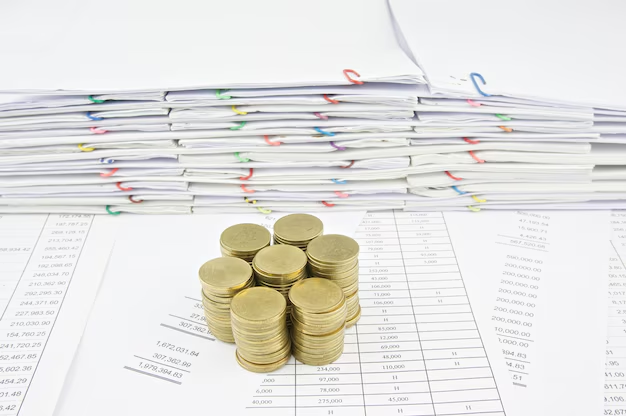Understanding the Cost to Sell on Robinhood: What You Need to Know
Investing through Robinhood has become an increasingly popular choice for many, thanks to its user-friendly interface and commission-free trading approach. However, when it comes to transactions like selling stocks, you might wonder, just how much does Robinhood charge? Here's a comprehensive guide to help you understand the real costs associated with selling on Robinhood and how to navigate your transactions effectively.
What Does Robinhood Charge to Sell?
The Commission-Free Model
One of the biggest draws for Robinhood users is its commission-free trades. Unlike traditional brokers who might charge a percentage of the transaction or a flat fee for trades, Robinhood aims to democratize finance by allowing users to trade stocks, ETFs, options, and cryptocurrencies without charging commissions. This model significantly lowers the barrier to entry for casual and new investors.
Regulatory Fees
While Robinhood does not charge you directly for selling stocks, there are some mandatory regulatory fees that are beyond the brokerage's control. These are passed on to customers and typically include:
- SEC Fee: The U.S. Securities and Exchange Commission charges a fee on the sale of securities. This fee is usually a fraction of a cent per dollar of the sale and varies based on the sale amount.
- FINRA Trading Activity Fee: The Financial Industry Regulatory Authority imposes this fee to support their regulatory efforts. It's often quoted per share, but like the SEC fee, it amounts to a tiny fraction of the transaction.
While these fees are minimal, understanding them is crucial, as they ensure fair trading practices and investor protection.
Subtopics to Explore
How Robinhood Makes Money
Given that they offer commission-free trades, you might wonder, how does Robinhood thrive as a business? Here's what you should know:
- Payment for Order Flow (PFOF): Robinhood receives compensation for directing orders to market makers. This practice allows them to generate income while offering free trades to users.
- Robinhood Gold: This subscription service gives users access to professional research, larger instant deposits, and Level II market data for a monthly fee.
- Margin Trading: Users who trade on margin may incur interest charges on borrowed amounts.
Navigating Other Potential Costs
While selling stocks may be nearly free on Robinhood, certain scenarios might involve additional costs:
- American Depositary Receipts (ADRs): If you're trading foreign stocks as ADRs, there can be a fee imposed by the depository bank.
- Transfer Fees: Transferring your assets to another broker might incur fees, which Robinhood passes on from the clearing agency.
Being aware of these possible costs can help you make informed decisions as you plan your investment strategies.
Key Features of Robinhood's Trading Ecosystem
User Experience
Robinhood's intuitive interface and seamless mobile experience have set it apart. Understanding how to leverage these features can enhance your investing journey:
- Custom Alerts: Stay updated with stock price changes and market news via personalized notifications.
- Fractional Shares: Invest in high-priced stocks without needing to buy whole shares, allowing portfolio diversification even with limited funds.
- Live Updates: Access to real-time data helps make informed trading decisions.
Potential Challenges
While Robinhood has democratized stock trading, it's essential to recognize certain challenges:
- Limited Research Tools: Compared to some traditional brokers, Robinhood provides fewer research resources, which might require using third-party tools for comprehensive analysis.
- Technical Glitches: Users have occasionally faced issues like app outages or delayed notifications during high-volatility periods.
Arming yourself with information and considering supplementary resources can help you mitigate these potential downsides.
Practical Tips for Selling on Robinhood
Before selling your stocks, consider these practical tips:
- Review Fees: Although they are minor, always double-check the applicable SEC and FINRA fees before finalizing a sale.
- Stay Informed: Keep an eye on market trends and news that may affect your portfolios, such as earnings reports or geopolitical developments.
- Set Goals: Understand your investment objectives, whether it's capital appreciation, income generation, or diversification, and tailor your selling strategy accordingly.
🔍 Summary: Key Takeaways on Selling with Robinhood
- Commission-Free Trading: Sell without paying additional brokerage fees.
- Regulatory Costs Apply: Familiarize yourself with minimal SEC and FINRA fees.
- Revenue Model: Understand how Robinhood earns through PFOF, subscriptions, and margin interest.
- Features and Tools: Utilize alerts and fractional shares to optimize trading.
- Consideration of Challenges: Use external research tools and remain vigilant during volatile periods.
Insights for the Savvy Investor
Making informed decisions is paramount in the world of trading, and Robinhood provides a unique platform to participate actively with minimal cost. Understanding the intricacies of its fee structure and leveraging its features can enhance your trading experience. By staying informed and keeping abreast of market conditions, you can effectively manage your investments and align your trading actions with your financial goals.
In conclusion, while Robinhood's approach to selling stocks offers benefits through cost-savings, awareness of the finer elements of its operational model will better position you for success in navigating the financial markets. Each trade you make is a step towards financial literacy and empowerment, and understanding the costs—or lack thereof—will ensure you do so wisely.

Related Topics
- Are There Any Good Indexes On Robinhood
- Can I Buy Bnd In Robinhood
- Can I Buy Bonds On Robinhood
- Can I Buy Gold On Robinhood
- Can I Buy Trulieve Stock On Robinhood
- Can I Buy Trump Coin On Robinhood
- Can I Contact Robinhood By Phone
- Can I Day Trade Crypto On Robinhood
- Can I Day Trade On Robinhood
- Can I Day Trade With Robinhood
